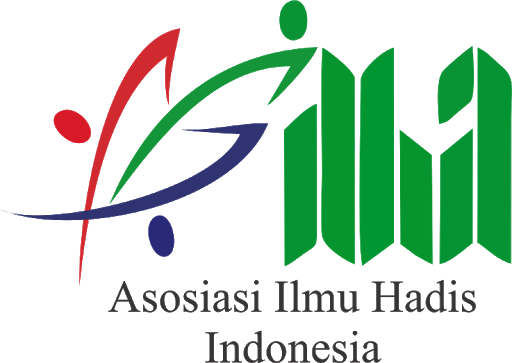Analysis Value of The Official Trailer of Film “The Santri” in Living Hadith Perspective
DOI:
https://doi.org/10.14421/livinghadis.2021.2941Keywords:
Morals, Official Trailer, The Santri, PBNU, Living HadithAbstract
This study intends to observe moral values in the Official Trailer of the Film "The Santri". The type of this research is a qualitative descriptive study with the research subject, namely the Official Trailer of the Film "The Santri" produced by the Nahdlatul Ulama (PBNU) Board. Descriptive research is research that is obtained in the form of words, pictures from the official trailer of the film "The Santri" and not data in the form of numbers. Primary data collection procedures used using listening, taking notes, interviews, observation (field notes), and documentation. The research results that have been described, namely the Official Trailer of the film "The Santri" contain good moral values for all groups and all ages, including educational, cultural, moral values, strengthening personality, integrity, for the millennial generation in the perspective of Living Hadith. This film can be used as a reference and a means of moral education for children with the guidance of parents as well as for adolescents and can be used as a means of cultivating morals so that the positive values in the film can be digested by the children properly.
References
Albarikah, K. R. (2017). Pesan Moral dalam Film (Analisis Isi Kualitatif Pesan Moral dalam Film the Trash). Universitas Muhammadiyah Surakarta.
Ampera, T. (2010). Pengajaran sastra: Teknik Mengajar Sastra Anak Berbasis Aktivitas. Widya Padjadjaran.
Ardini, P. P. (2012). Pengaruh Dongeng dan Komunikasi Terhadap Perkembangan Moral Anak Usia 7-8 Tahun. Jurnal Pendidikan Anak, 1(1).
Dhofier, Z. (1985). Tradisi Pesantren: Studi tentang Pandangan Hidup Kyai. LP3ES.
Herimanto & Winarno. (2011). Ilmu Sosial & Budaya Dasar. PT. Bumi Aksara.
Ilyas, Y. (1999). Kuliah Akhlak. Pustaka Pelajar Offset.
Kesuma, D. (2012). Pendidikan Karakter Kajian Teori dan Praktik di Sekolah. PT. Remaja Rosdakarya.
Madjid, N. (1997). Bilik-Bilik Pesantren: Sebuah Potret Perjalanan. Paramadina.
Mustopo, M. H. (2001). Kebudayaan Islam di Jawa Timur: Kajian Beberapa Unsur Budaya Masa Peralihan. Jendela.
Nata, A. (2005). Filsafat Pendidikan Islam. Logos Wacana Ilmu.
Qudsy, S. Z. (2016). Living Hadis: Genealogi, Teori, dan Aplikasi. 01(01).
Rahman, F., & Fahmia, A. (2001). Gelombang Perubahan dalam Islam: Studi tentang Fundamentalisme Islam. Raja Grafindo.
Suryadilaga, M. A. (2007). Penelitian Living Hadis Materi Ajar. UIN Sunan Kalijaga.
Syamsudin, S. (2007). Ranah-ranah Penelitian dalam Studi al-Qur’an dan Hadis. Teras.
Ahmad bin Hambal, Abu Abd Allah, Musnad Ahmad bin Hanbal, Beirut, al-Mu’assasah, 1995.
Al-‘Asqalani al-Syafi’I, Ahmad bin ‘Ali bin Hajar Syihab al-Din, Tahdzib al-Tahdzib, Beirut, Muassasah, 1996.
Al-Darimi, Abdullah bin Abdurrahman bin al-Fadhl bin Bahram, Musnad al-Darimi, Riyadh, Dar al-Mughni lil Nasyr Wa al-Tauzi’, 1990.
Al-Qaththan, Syaikh Manna, Pengantar Studi Ilmu Hadits, penerjemah Mifdhol Abdurrahman dari judul asli, Mabahits fi Ulum al-Hadits, Jakarta, Pustaka Al-Kautsar, 2009.
Al-Tirmidzi, Muhammad bin ‘Isa bin Saurah, al-Jami’ al-Shahih wa huwa Sunan al-Tirmidzi, Riyadh, maktabah al-Ma’arif lil Nasyr wa al-Tauzi’, 1997.
Program file: Program Maktabah Syamilah.
https://nu.or.id/daerah/liwetan-lestarikan-budaya-santri-di-hari-santri-fdPZs
https://www.nu.or.id/nasional/definisi-santri-menurut-gus-mus-dw7wM
https://www.kompasiana.com/laodefaraz/61711ce2c01a4c250a0e9992/makna-santri-dan-penerapannya
Downloads
Additional Files
Published
Issue
Section
License
- Authors who publish with this journal agree to the following terms:
- Authors retain copyright and grant the journal right of first publication with the work simultaneously licensed under a Creative Commons Attribution License that allows others to share the work with an acknowledgement of the work's authorship and initial publication in this journal.
- Authors are able to enter into separate, additional contractual arrangements for the non-exclusive distribution of the journal's published version of the work (e.g., post it to an institutional repository or publish it in a book), with an acknowledgement of its initial publication in this journal.
- Authors are permitted and encouraged to post their work online (e.g., in institutional repositories or on their website) prior to and during the submission process, as it can lead to productive exchanges, as well as earlier and greater citation of published work.
















